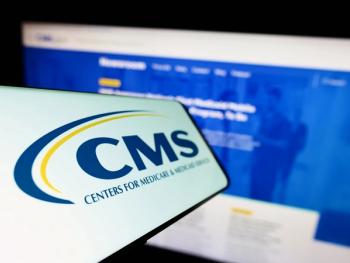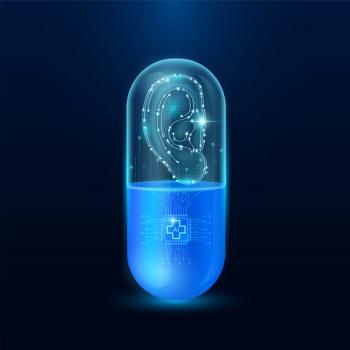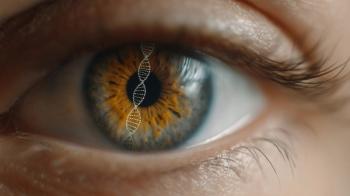
FDA Approves Two Gene Therapies for Sickle Cell Disease, Including the First Using CRISPR
The FDA has approved Lyfgenia and Casgevy to treat patients with sickle cell disease. Casgevy is the first FDA-approved gene therapy to use the CRISPR gene editing technology.
The FDA has approved two gene therapies to treat patients with patients 12 years and older with severe sickle cell disease.
Vertex Pharmaceuticals’ gene therapy Casgevy (exagamglogene autotemcel) is the first gene therapy approval by the FDA that uses the CRISPR/Cas9 technology. Casgevy is a one-time gene therapy that uses a patient’s own hematopoietic stem cells that are edited to produce high levels of fetal hemoglobin in red blood cells. Patients receiving this therapy have stem cells extracted and then edited using the CRISPR/Cas9 technology. The edited stem cells are then infused back into the patient as part of an autologous hematopoietic stem cell transplant.
So far, nine authorized treatment centers have been selected to administer the therapy.
Sickle cell disease is a group of inherited blood disorders affecting approximately 100,000 people in the United States. Most of those affected are Black people. The disease is caused by mutations in a gene that encodes a key component of hemoglobin, the oxygen carrying molecule in blood. It can lead to painful symptoms and chronic hospitalizations and can reduce life expectancy. Treatment involves regular transfusions.
The safety and effectiveness of Casgevy were evaluated in an ongoing single-arm trial with 44 adult and adolescent patients with sickle cell disease. The primary efficacy outcome was freedom from severe vaso-occlusive crises episodes for at least 12 consecutive months during the 24-month follow-up period. A vaso-occlusive crisis occurs when sickled red blood cell block blood flow, resulting in pain. In the trial, 29 of 31 patients that had sufficient follow-up time to be evaluated did not experience those vaso-occlusive crises. None of the patients experienced graft failure or rejection.
The most common side effects were low levels of platelets and white blood cells, mouth sores, nausea, musculoskeletal pain, abdominal pain, vomiting, fever and low white-blood cell count, headache and itching.
The other sickle cell gene therapy approved by the FDA today is Bluebird bio’s Lyfgenia (lovotibeglogene autotemcel or lovo-cel), which is a one-time treatment that is designed to add functional copies of a modified form of the β-globin gene into a patient’s own blood stem cells, enabling the body to produce its own hemoglobin. It does not use CRISPR technology.
Lyfgenia will be available in the first quarter of 2024 through a national network of qualified treatment centers, Bluebird said.
The company has set the wholesale acquisition cost of $3.1 million. Executives said this price recognizes the value the therapy may deliver. Frequent vaso-occlusive events average between $4.0 and $6.0 million in direct lifetime medical costs, Bluebird said in a press release. Outcomes-based contract offerings available to both commercial payers and Medicaid.
The safety and effectiveness of Lyfgenia is based on the analysis of data from a single-arm, 24-month multicenter study in patients with sickle cell disease and history of vaso-occlusive events. Twenty-eight (88%) of 32 patients achieved complete resolution of vaso-occlusive events.
The most common side effects included mouth sores of the lips, mouth, and throat, low levels of platelets, white blood cells, and red blood cells, and fever and low white-blood cell count, consistent with chemotherapy and underlying disease.
The Sickle Cell Disease Association of America posted a
The association’s statement also sounded a note of caution about the durability of the treatment, and whether the stem cells treated with Casgevy will continue to produce nonsickling red blood cells for the rest of the person’s life. The association’s statement also noted that the treatment requires chemotherapy, which it said raises concerns about chemotherapy-associated complications, such as infertility or secondary cancer.
Earlier this year, the Institute for Clinical and Economic Review (ICER) released report that both Casgevy and Lyfgenia could be cost effective if priced at between $1.35 million and $2.05 million. ICER analysts found that both therapies are likely to improve quality and length of life, using a $2 million placeholder price for both.
ICER said, however, that the improvement seen with either therapy needs to be balanced against potential harms of myeloablative conditioning, which is the use of high-dose chemotherapy before a stem-cell transplant, as well as uncertainties about duration of effect.
Robert A. Brodsky, M.D., professor of medicines at Johns Hopkins University School of Medicine and president of the American Society of Hematology said in a statement, that these gene therapies represent a tremendous step forward for a patient community that has been historically overlooked and underfunded. “While these new gene therapies are potentially life-changing for individuals living with SCD (sickle cell disease), they must be accessible to be effective,” he said.
Newsletter
Get the latest industry news, event updates, and more from Managed healthcare Executive.























